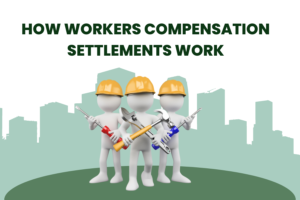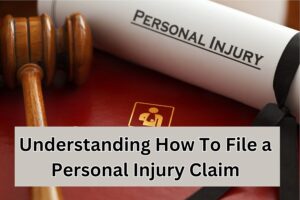How to Choose a Bankruptcy Attorney Who Will Not Hide Anything From You

One of the most challenging legal situations individuals and businesses may face is bankruptcy. It can hinder them from fulfilling financial obligations. It may also lead to sleepless nights and stress.
Bankruptcy has certain standards and affects people’s lives in a variety of ways. While debt discharge or reorganization might give relief, it’s always a good idea to understand what’s involved.
An expert bankruptcy lawyer can help you determine if filing for bankruptcy is a smart option for your situation. A bankruptcy lawyer, in addition to addressing your concerns, can guarantee that you progress through the process efficiently and emerge with the clean slate you seek.
However, going through a financial crisis and finding a trustworthy lawyer might be challenging. You will, without a doubt, require the services of someone who will ensure that the entire procedure runs well. They should also assist you in determining whether bankruptcy is truly the best option for you.
Interviewing and questioning the lawyers you are considering is the greatest way to go before deciding on the best one for you. But how can you approach a potential lawyer to help you make a decision? You can ask the questions listed below to your potential lawyer.
Is there a viable alternative to bankruptcy for me?
Inquiring about alternatives to bankruptcy permits the lawyer to discuss the depth of your financial problems.
It helps you to determine whether the lawyer sees you only as a buyer for what he sells. Or, has the lawyer evaluated both concerns and time to determine if you require bankruptcy?
In truth, the majority of people who consult with a bankruptcy attorney truly require bankruptcy. For a long time, they ignored warning indications that the situation was beyond repair.
What is the most critical issue for me?
Few cases are without issues. Whether it’s safeguarding assets, passing the means test, or raising funds to support a Chapter, practically every set of circumstances has bankruptcy implications.
You want to know if the lawyer is candid about the likely snags. Can he speak openly about what could be difficult in your case?
How many similar situations have you handled?
While the answer may be brief, you should discuss the lawyer’s bankruptcy expertise. In general, the greater the fraction of a lawyer’s job load devoted to bankruptcy, the better.
Bankruptcy is a recognised legal speciality, and if your case is complicated, having experience on your bankruptcy team will be beneficial.
Who will be assigned to my case?
A bankruptcy legal team often consists of a lawyer as well as support professionals. Much of the effort involved in creating the crucial schedules is regular.
What you want to avoid is a company model in which all of the work and analysis is done by people who do not have a legal degree. Bankruptcy is more than “filling out forms.” Each response in the questionnaire has a legal ramification that is relevant to your case.
In addition, enquire about how you and the lawyer will contact you if you have questions during the procedure.
Am I eligible to file a Chapter 7 bankruptcy?
Bankruptcy isn’t the end of the road. One alternative you can take is to file for Chapter 7 bankruptcy, which is a way to help individuals cope with the disastrous effects of their business, finances, and assets going haywire. This law allows individuals to liquidate their non-exempt assets to be able to pay off creditors. Unsecured priority debts, such as child support and tax debts, are settled first, followed by secured debts, like car and home loans, and then unsecured nonpriority debts.
To be eligible for one, you need to pass the means test. It’s a method for determining whether your income is low enough to qualify. You’ll also be under credit counseling to help you understand your options for managing your debts. If you plan to take this route, it’s essential to work with a Chapter 7 bankruptcy attorney who practices law in your local area, as they’re more familiar with state-specific bankruptcy laws.
What isn’t covered by your fee?
Those who are drowning in bills frequently believe that pricing is the most essential factor in selecting a lawyer.
The only time we believe it’s essential is when the price is ridiculously cheap. Either you aren’t receiving much service for that amount, or the lawyer is unable to compete on quality and hence reduces the charge.
Inquire whether there are any additional fees you must pay in addition to the filing charge. Ask about representation if a trustee audit or an adversarial proceeding is planned.
The most crucial aspect of interviewing any potential lawyer is not what you ask, but rather how they respond to your questions. If they are reluctant, unconfident, and you have the impression that they are hiding something from you, it is a clue that they are incompetent to handle your case.
There will be problems if communication between you and your lawyer is not open and respected. You must be at ease enough in the relationship to discuss anything unpleasant or humiliating. Otherwise, you and your attorney are playing with an incomplete deck.






